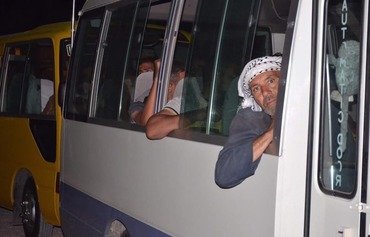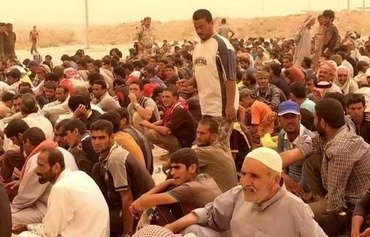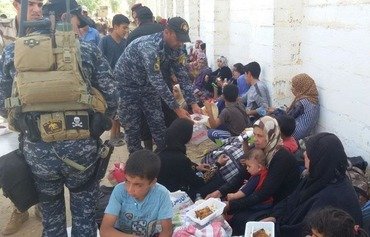As Iraqi forces move in on the "Islamic State of Iraq and the Levant" (ISIL) strongholds of al-Hawija in Kirkuk, Mosul in Ninawa and the remaining cities in Anbar under ISIL control, the group has carried out a string of executions.
With these killings, and the accompanying grisly photos, the group is seeking to assert its power and shore up its shaky rule in the remaining areas under its control in northern and western Iraq, Iraqi analysts and officials tell Mawtani.
In al-Hawija, ISIL executed five youths on charges of "collaborating with government forces" and mutilated their bodies, media outlets reported June 9th.
A few days later, on June 12th, the group published graphic images online of one of its elements executing his own brother and another person.
On June 25th, ISIL circulated images of its fighters executing six young men in the Anbar border town of al-Qaim on charges of apostasy. And on June 28th, the group published photos showing the execution of five tribesmen in al-Shirqat.
ISIL had accused the five, who were from the al-Jamilah and al-Hay al-Askari tribes, of "priming residents to collaborate with liberating forces", according to Iraqi news reports.
In addition to these executions, ISIL continues to mete out brutal punishments under various pretexts to residents of areas under its control, including stoning, flogging and amputations, analysts said.
There has been a marked increase in the administration of these punishments in conjunction with the Iraqi victories in Anbar and Salaheddine, they added.
A rule of violence and fear
"With the recent wave of executions, ISIL is trying to restore its terrifying image and show people it still has power and dominance," said Iraqi military analyst Safaa al-Aasam.
The group's image was shaken when it began losing ground and Iraqi forces approached its strongholds in Mosul and al-Hawija and Anbar, he told Mawtani.
"The extremist organisation once more resorted to the media for the dissemination of images of gruesome death, because it knows very well that the media is the latest weapon in its battle with Iraqi forces," he said.
By publishing and circulating the images of its executions, ISIL seeks to reassure its retreating fighters that the group still holds ground and that death will be the penalty for those it defeats, al-Aasam said.
The group's policy of horror also aims to suppress the burgeoning popular uprising against it which has been gaining force in its strongholds, he said.
That is why many of those executed are accused of co-operating with Iraqi security forces or the Peshmerga, he added.
"This series of executions was not the first carried out by the terrorist organisation in the areas under its authority, especially in al-Hawija in the province of Kirkuk," Iraqi MP Khalid al-Mafraji told Mawtani.
Repression signals insecurity
Such repressive measures are the natural reaction of an extremist group that is fully aware that local residents oppose it and await the opportunity to revolt against it, al-Mafraji said.
This type of grassroots opposition activity has increased with the growing proximity of Iraqi forces, he added, noting he has learned that al-Hawija residents are taking part in armed underground military operations against ISIL.
These include shooting and killing ISIL elements, burning the group's black banner and targeting its patrols with explosives, he said, which has fueled the group's wrath against area residents.
"The group's repressive policies are pushing residents away from it," said Maj. Gen. Maan al-Saadi, 2nd special operations commander with the counter terrorism apparatus.
"They now suffer the policy of humiliation under ISIL's influence," he told Mawtani, adding that it is likely that residents will stage a popular uprising against the group in areas it controls.
This spirit of rebellion is due to increasing public confidence in the advance of the liberating Iraqi forces, al-Saadi said.








